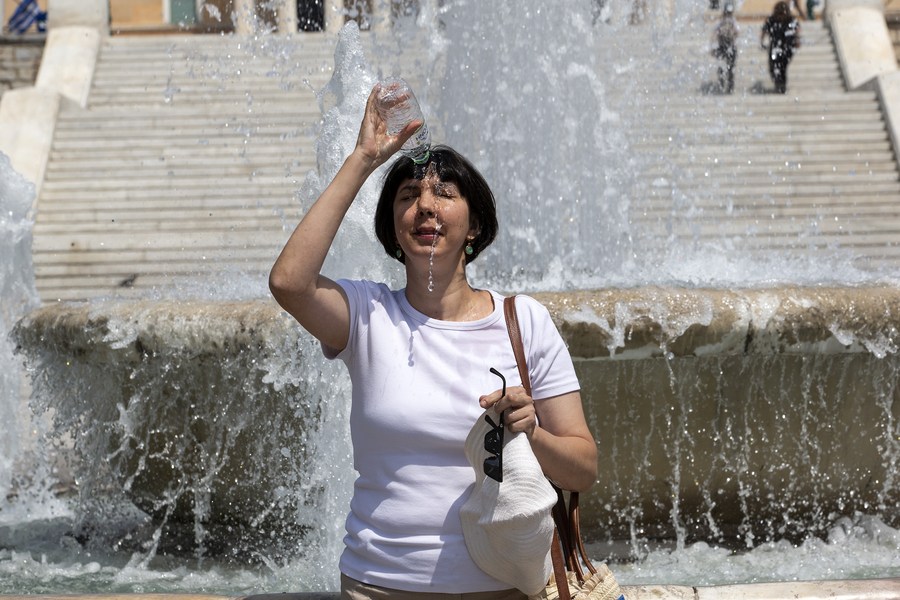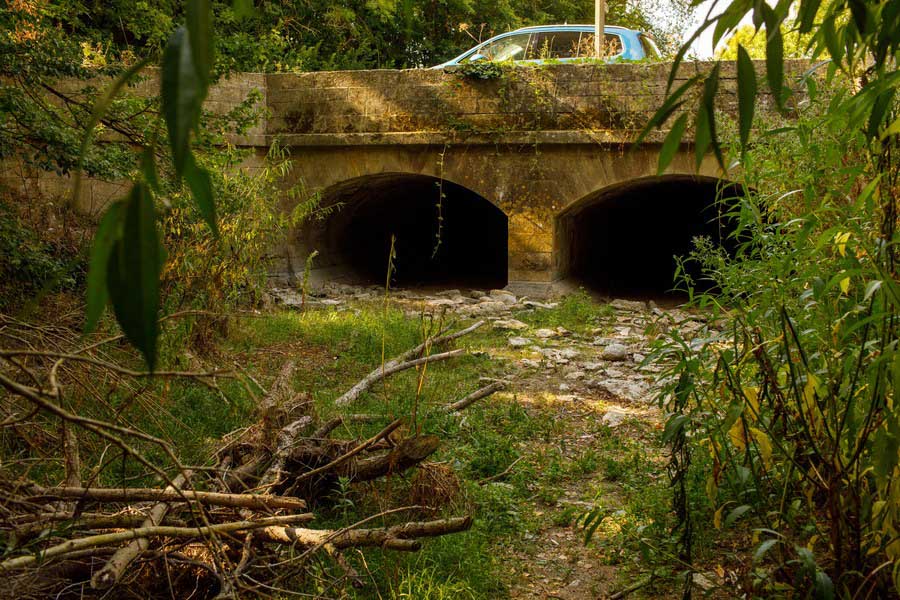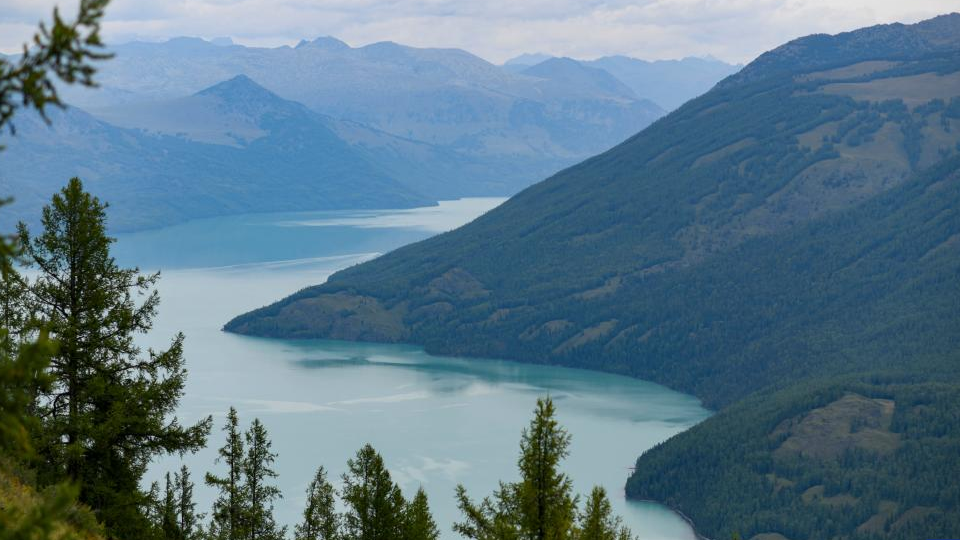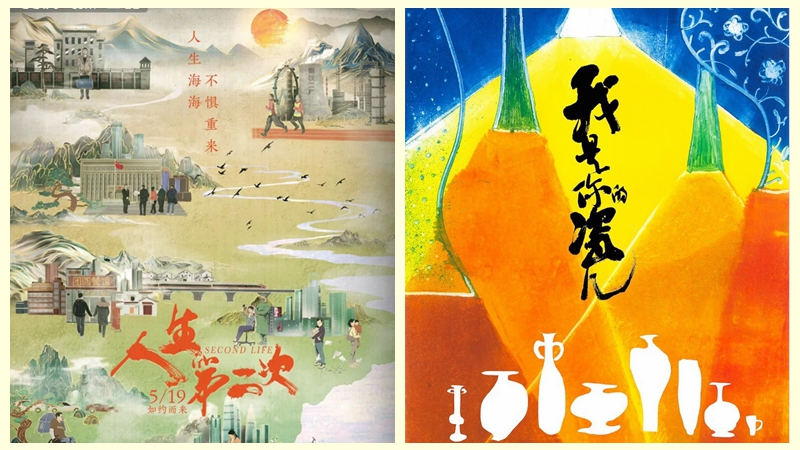Heatwaves, severe droughts cause Europe searing pain
* Heatwaves scorched Europe earlier than usual, especially in the southern, western and central parts. Multiple countries have reported record high temperatures.
* While global food and fuel prices have seen spikes since the Ukraine crisis intensified, the drought has dealt another blow to Europe's agriculture.
* This blazing summer has sounded a warning bell that mitigating global warming requires instant and serious implementation of green actions.
ROME, Aug. 20 (Xinhua) -- Historic heatwaves and droughts have set the tone for Europe this summer, which has been gripped by blistering heat, devastating forest blazes, little precipitation and dried up rivers and lakes.
The prolonged extreme weather is taking a heavy toll on European countries, which are still beset by rising prices and energy crisis. Experts have warned of reduced agricultural output, hampered shipping and insufficient electricity production, among other challenges.
Climate change, a major cause of the extreme weather, has become a pressing issue to be dealt with more than ever, with Europe struggling to realize its green ambition without risking energy insecurity.

A woman pours water on her head during a heatwave in Athens, Greece, on June 22, 2022. (Xinhua/Marios Lolos)
HOT DRY SPELL
Heatwaves scorched Europe earlier than usual, especially in the southern, western and central parts. Multiple countries, including Spain and Britain, have reported record high temperatures, while Portugal recorded a new high of 47 degrees Celsius in mid-July.
The Institute of Atmosphere and Climate Science of Italy's National Research Council said in early August that this year is on pace to be the hottest and driest year in Italy on record dating back to 1800.
Wildfires have become more frequent. This year, some 660,000 hectares of European land have been burned by large fires as of Aug. 13, a record high at this point of the year since data collection began in 2006, according to the European Forest Fire Information System.

Firefighters battle a wildfire in Cebreros, Castilla y Leon, Spain, July 21, 2022. (Junta de Castilla y Leon/Handout via Xinhua)
Aside from Mediterranean countries that are no new victims of fires in summer, such as Portugal, Spain, Italy and Greece, blazes have also ravaged central and northern Europe, damaging buildings and forcing people to flee their homes.
The early heatwaves have worsened the severe drought that began to trouble much of Europe since early 2022 due to persistent lack of precipitation.
Britain officially declared a drought across a large swathe of England. The source of the River Thames in the country has dried up further downstream, and major rivers that run through the European continent have seen water levels drop significantly, including the River Rhine.

Photo taken on Aug. 14, 2022 shows the view of a dried riverbed near the source of the River Thames, southwest of the town of Cirencester, Britain. (Photo by Tim Ireland/Xinhua)
In Slovenia, the drought has prompted restrictions on tap water usage and agricultural irrigation, and similar actions are underway in many other nations.
Recent data from the European Commission's Joint Research Center (EC-JRC) showed some 47 percent of the territory of the European Union and Britain in drought warning conditions and 17 percent in alert conditions.
The current drought could surpass the 2018 drought to be the worst in 500 years, Andrea Toreti, a senior researcher with the center, was quoted by media reports in August as saying.

Withered sunflowers are seen in Karst, Nova Gorica, Slovenia, Aug. 16, 2022. (Photo by Zeljko Stevanic/Xinhua)
MULTIFACETED IMPACT
The heatwaves and droughts are creating a multifaceted impact on Europeans, experts have warned.
"Droughts have consequences on the ability of nature to function and provide society with the essentials for life. Biodiversity, particularly soil micro-organisms that maintain soil fertility, may struggle to recover, impacting next year's farming productivity," said Mike Rivington, a senior scientist at the James Hutton Institute in Britain.
Dutch media reported an increasing risk of salinization in the west of the Netherlands as rivers and lakes supply less fresh water. Lack of water and rising water temperatures have also brought about blue-green algae and contributed to fish death.
While global food and fuel prices have seen spikes since the Ukraine crisis intensified, the drought has dealt another blow to Europe's agriculture, with crop output to be reduced and food prices feared to be further increased.
Rising fertilizer prices, energy and feed costs are putting pressure on farmers, the German Farmers' Association told local media, adding that if it does not rain consistently soon, the yield of crops could be reduced by 30-40 percent.
In Greece, France, Italy and Hungary, the weather is expected to reduce the production of olive oil, wine, corn and animal feed. Hungarian Minister of Agriculture Istvan Nagy told local media in July that this year's damage caused by aridity to farmers was already double the total of the past 10 years.
Lowered water levels have also caused a headache for shipping, which has a ripple effect on the economy. Due to sizzling temperatures and lack of rain, the River Rhine -- one of the most important waterways in Europe -- is seeing ships "sailing with less than half the usual cargo volumes," local media reported.

Photo taken on Aug. 17, 2022 shows the bank of River Rhine in Dusseldorf, Germany.The water level of River Rhine has dropped due to high temperature and drought. (Xinhua/Ren Pengfei)
Fuel and raw materials including grain, chemicals, minerals, coal and oil products are all frequently shipped along the River Rhine. The curtailed water transport affects industrial production, and notably limited coal transport for coal-fired power plants, which have regained importance in the region in the wake of the Russia-Ukraine conflict.
The heat and droughts are making the energy crisis in Europe even more intractable, as they disrupt electricity production from hydro, nuclear and wind power plants. Hydropower was reduced in Italy, Spain and Norway, while several nuclear power plants were shut down in France.
"Energy production from run-of-river plants until the beginning of July was lower than the 2015-2021 average for many European countries ... The same decrease is true for hydropower reservoir levels," said a report published in July by the EC-JRC.
CLIMATE CHALLENGE
Climate change is a major factor behind this worrying situation, experts have noted, calling for an immediate global response to tackle the crisis.
"The record high temperatures we're expecting and experiencing are not surprising. Climate change is leading to changes in extreme temperatures, changes in the number of heatwaves around the world," Corinne Le Quere, a professor of Climate Change Science at Britain's University of East Anglia, told Xinhua.
The World Metrological Organization warned in July that heatwaves will occur more frequently into the 2060s.
According to a report of the United Nations Intergovernmental Panel on Climate Change (IPCC), temperatures will rise more quickly in Europe than elsewhere.
The IPCC expects a worrisome combination of climatic impact-driver changes by mid-century if global warming exceeds 2 degrees Celsius in the Mediterranean, such as temperature extremes, increases in droughts and wildfires, and less precipitation and snow cover.
This blazing summer has sounded a warning bell that mitigating global warming requires instant and serious implementation of green actions.
While drought mitigation strategies are of the utmost importance now, "further efforts are needed also for preventively adapting to the changing weather patterns by climate-proofing energy supply and applying sustainable solutions in agriculture," the European Commission said in its Drought in Europe report in July.
But the crux of the matter is to ensure Europe's energy security in its green transition bid, especially after the region experienced energy supply disruption amid the Ukraine crisis.

A dried corn field is seen as a severe drought hits France, in Puiseux-Pontoise, about 30 km northwest of Paris, France, Aug. 18, 2022. (Xinhua/Gao Jing)
The drought has forced some countries to turn to coal-fired stations to fill the green energy gap, analysts said, while warning of rising energy bills in Europe this summer.
"The changes in climate are happening faster than actions are being taken to adapt society to changes," said Le Quere.
Globally, "we need to get together to tackle climate change, because the global emissions have to be brought down to net zero for the climate to stabilize," but people also need to "find solutions that will make society work as the climate gets warmer and warmer until it stabilizes," said the professor.
Photos
Related Stories
- Europe engulfed by new COVID-19 wave, says ECDC expert
- Interview: Europe suffers under its own sanctions on Russia, says Croatian analyst
- Roundup: Europe faces unusual mid-June heatwave
- Human smuggling gang busted in central, eastern Europe
- Europe faces non-energy challenges amid Ukraine crisis, experts say
Copyright © 2022 People's Daily Online. All Rights Reserved.









